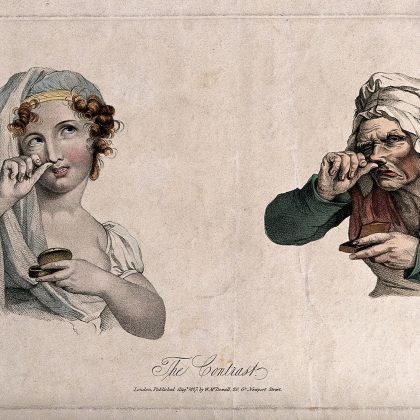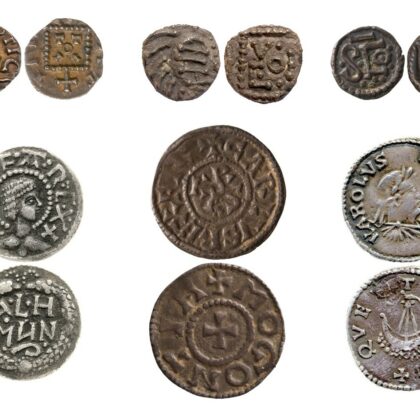Tobacco and the Social Life of Conquest 1580-1625
This accompanies Lauren Working’s Historical Journal article Tobacco and the Social Life of Conquest in London, 1580–1625 part of the Intoxicants and Early Modern European Globalization special issue
As early as 1599, English authors praised tobacco for evoking ‘a most gentleman-like smell’, one that seemed far removed from the Native American societies and lands from whence it came. This article uses the material culture of smoking – from clay pipe fragments to iron stamps, rolled leaves to silver and tortoiseshell boxes – to connect an American-sourced intoxicant to changing tastes and expressions of masculinity in early seventeenth-century London.
Adopting a comparative, anthropological approach to smoking sheds light on how Native American goods, knowledge, and practices were integrated into English social habits, and illuminates some of the ways in which literary wits engaged with colonialism. In addition to raising attention to the impact of colonial projects on elite civility and material assemblages, this article also makes a case for why the erasure or absence of Indigeneity is important to our understanding of shifting ideas of refinement in early modern England. In the poetry of London wits, which often connected tobacco to the colonial imagination, the intoxicating pleasures of the plant fuelled fantasies of English conquest over Indigenous spaces.
Read the full open access article
Main image: Vanitas still life, Hendrick Andriessen (1607–1655)






